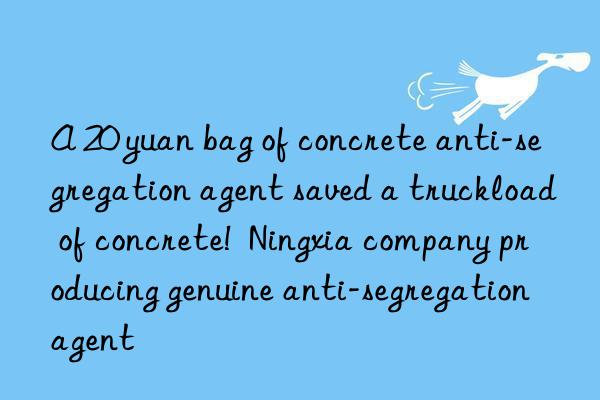
In the past thirty years, we have experienced unprecedented concrete construction projects in human history, and this will continue for a long time.
Sand, as the raw material of concrete, is a natural resource formed by nature in the long-term process and becomes less and less with use. Although we are accustomed to the application of river sand, this will soon become a thing of the past, and the application of machine-made sand will soon come. Now, we are in a period of drought, with various types of sand, unreasonable indicators and large fluctuations, which affects the quality of concrete.
Sand quality fluctuations are mainly caused by changes in specific surface area, porosity, and rheology caused by unreasonable particle shape and gradation. The water in concrete is used to hydrate the glue to produce strength, and to moisten the surface of the solid material and fill its gaps to cause rheology to facilitate construction. There are three ways water exists in concrete: bound water, adsorbed water, and free water. The electrical adsorption force of the free water receiving system is small. If the density of the concrete mixture is poor, the viscous resistance of the void channels will be small and the free water will easily leak out. The usual solutions are to increase the amount of fine sand and the amount of admixtures. The current problem is that fine sand is in short supply, and fly ash, which requires little water, is also in short supply.
Segregation not only affects the construction, but also affects the homogeneity of concrete. The segregation of concrete is caused by the separation of pulp and bone. When pulp bones are separated, firstly, pulp leakage is like water bleeding because the porosity of the aggregate is too large, and secondly, pulp is secreted due to lack of adhesion between pulp bones.
The phenomenon of pulping is usually caused by overdosing of polycarboxylate additives. Polycarboxylate admixtures are a series, and the performance of different molecular structures will vary greatly, including the water reduction rate, which may fluctuate between 20% and 35%. When designing the mix ratio, we hope that the water reduction rate will increase linearly as the admixture content increases, but we ignore the saturation content. Once the saturation dosage is exceeded, part of the water in the concrete mixture will be discharged from the slurry, the slurry will separate from the aggregate, and the slurry itself will harden and stick to the bottom, causing slurry bleeding.
Therefore, how to retain appropriate free water in the slurry and mixture system is an important factor in overcoming the impact of the current sand quality and the quality of polycarboxylate additives on the homogeneity of concrete. .
To this end, we have made some explorations into the problems of bleeding and segregation that occur during concrete mixing production and mixture transportation, and have achieved preliminary results. Make some improvements and emergency measures without affecting concrete production, strength, and setting time.
Concrete anti-segregation conditioner
1. Scope of application: The appearance of floating slurry on the concrete surface after segregation caused by excessive water and admixtures
Convert the normal concrete to Reduce the slump
2. Instructions for use: Introduce into the tanker and stir for 2-3 minutes. Pour to the separation surface and shake or stir
3. Recommended dosage: 20-50g/ Cubic meters
4. Note: Green and environmentally friendly, does not affect concrete strength
<img src="/upfile/202304/2023041334528065.jpg"/
 微信扫一扫打赏
微信扫一扫打赏

